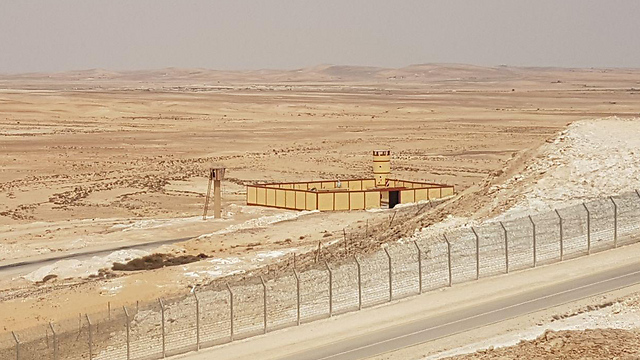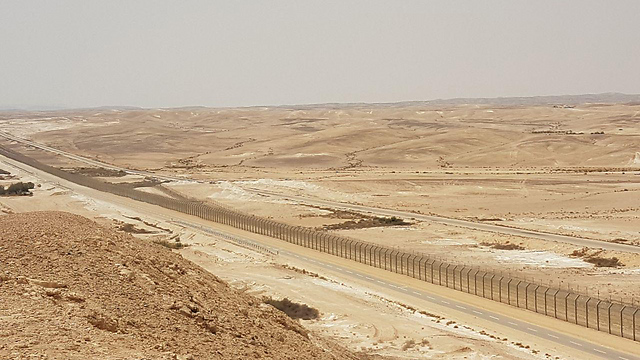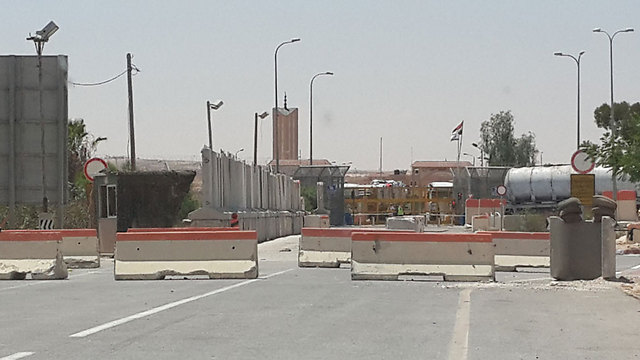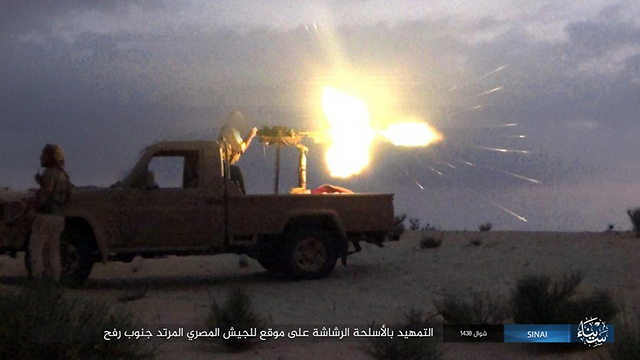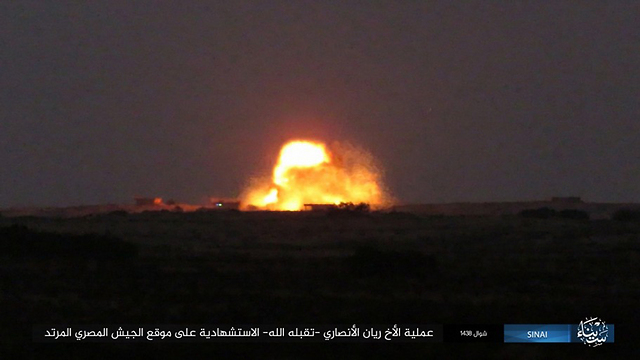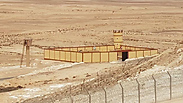
ISIS in the Sinai eyeing Israel
According to senior IDF officials, it is only a matter of time and strategic consideration before ISIS in the Sinai—which boasts hundreds of fighters—turns its attention towards Israel and aims to carry out a serious attack.
"The moment ISIS carries out a significant attack against us, they will be under intense Israeli and Egyptian pressure," an IDF source said. "They not be able to withstand it at a time when they are facing defeats elsewhere in the region, such as Iraq and Syria."
However, that has not stopped the organization from attacking the Egyptians.
On Friday, ISIS carried out a large attack against Egyptian military forces near the village of Al Barth, south of Rafah. It is about 20km from the Nitzana Border Crossing and five Israeli communities. The attack killed 23 Egyptian soldiers and included two car bombs and an assault on a military checkpoint.
Infiltration from the Egyptian border
The Southern Command's 80th "Edom" Division is in charge of border security for the IDF. The unit was established in 2007 with the intention of dealing with the problem of infiltrators from the Egyptian border.
Whereas illegal African migrants were once the top concern in the area, that honor has since gone to ISIS and Al Qaeda. As such, the unit's function has changed dramatically and it is now in charge of a smaller section, which includes the five Israeli communities.
On the Egyptian side, the same function is being carried out by Egyptian border guards, who have suffered quite a few casualties in recent years in the fighting against ISIS. Their positions are being fortified and are located roughly half a kilometer apart.
A senior IDF source told Ynet that an ISIS attack on Egyptian forces near the border is only a matter of time and the army is working to thwart it.
"The main challenge here is the lack of depth. We see the Egyptians, us and the fence, which cannot stop terrorists. The attack they did on Friday, for example, is a terrorist attack that wouldn't shame a special unit. Car bombs and frontal assaults were utilized."
The close proximity of Israeli communities and vital assets in the area is a concern, especially the Nitzana crossing itself, which is meant to be a symbol of Egyptian and Israeli cooperation. Everyday roughly 80-90 trucks carrying goods travel between the two nations.
One of the worst terror attacks in recent memory occurred in 2012 when the forerunner to ISIS in the Sinai Peninsula (ISIS-SP) attacked an Egyptian army post on the Egyptian side of the crossing.
"One of our horror scenarios is an attempt to smuggle a truckload of explosives into the Nitzana crossing and then penetrate into Israeli territory," said the IDF official.
20 Egyptian battalions against hundreds of ISIS fighters
Since the ousting of former Egyptian President Mohammed Morsi in 2012, Abed al-Fattah el-Sisi has been waging an all out war against terrorism in the Sinai. Israel has been allowing Egypt to deviate from parameters surrounding the peace agreement and allowed the government to increase their military presence in the region in an effort to combat the surge of terrorism.
What was once three to four battalions is now twenty. Additionally, the Egyptians have brought in combat aircraft, armored vehicles and artillery. They have even acquired Chinese UAVs.
"It is not easy to fight a Bedouin when you are not a Bedouin. The population has been neglected for years by the regime, they do not even have identity cards. Each tribe is an entity in its own right, and the province of Sinai is a kind of new Bedouin tribe. What happens there is similar to what is happening in Judea and Samaria, and the challenge of the Egyptian army is to prevent the population from joining ISIS," said the IDF source.
Recently there has been an interesting turnaround in the balance of power in the northern part of the Sinai.
The dominant tribe of Tarabin, who makes its living from smuggling and drug cultivation, entered a cycle of bloodshed with ISIS in Sinai after the organization's religious police seized their goods for religious reasons.
The confrontation has since led to fighting, which has yet to resolve itself.
The Egyptian army sees this as an opportunity to join hands with the tribe, which has hundreds of its own fighters, against ISIS. However, the source of the tribe's income from criminal business puts a question mark on cooperation with the regime over an extended period of time.










